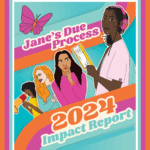Let’s Talk Month is all about, encouraging young people and parents to communicate with one another about sexuality — including relationships, bodies and body image, reproduction, gender and sexual orientation, sexual behavior, pregnancy, and STIs. We know it can be scary to talk about these topics with your teen, but it is necessary. Being sex-positive in these conversations can empower your teen to feel confident in their body, communicate their consent/boundaries, carry out healthy relationships, and more. Discussing sex in a sex-positive way with your teen involves promoting a healthy, open, and non-judgmental attitude toward sexuality.
Here are some examples to guide these conversations:
- Body Positivity:
- “It’s important to love and care for your body. Everyone’s body is unique and beautiful. How do you feel about your body?”
- “Did you know that there’s no ‘perfect’ body type? Beauty comes in all shapes and sizes.”
- Consent and Boundaries:
- “Consent is crucial in any sexual activity. It means both people enthusiastically agree. Always respect each other’s boundaries and ask for consent.”
- “If you ever feel uncomfortable or want to stop, it’s okay to say ‘no’ at any point. And the same goes for your partner.”
- Healthy Relationships:
- “Healthy relationships are built on trust, respect, and communication. It’s important to support each other’s goals and make decisions together.”
- “A good partner values your thoughts and feelings. How would you like to be treated in a relationship?”
- Safe Sex and Contraception:
- “If you ever decide to have sex, it’s important to know about STI protection and contraception options, if you don’t plan on being pregnant. We can discuss what’s available and how it works.”
- Respect for LGBTQ+ Identities:
- “Sexuality and gender are unique to each person. Some people are attracted to the opposite gender, some to the same gender, and some to both. It’s all okay.”
- “Gender identity is how people feel about themselves. We should always respect and support their identity.”
- Online Safety:
- “Online safety is important. It’s crucial to be cautious when sharing personal information and to be aware of online risks like cyberbullying.”
- “If someone makes you feel uncomfortable online or sends explicit content without your consent, that’s not okay. You should tell a trusted adult.”
- Masturbation and Self-Exploration:
- “Masturbation is normal and healthy. It’s a way to learn about your body and what feels good to you.”
- “Your body is your own, and exploring it is a natural part of growing up. There’s no shame in that.”
- Communication:
- “Open and honest communication is the foundation of a strong relationship. Don’t be afraid to talk about your feelings and concerns with the loved ones in your life, such as family, friends, and partner.”
- “If you’re ever unsure about something related to sex or relationships, please feel comfortable coming to me, or another trusted adult, for guidance.”
- Porn Literacy, Media, and Stereotypes:
- “Movies, TV shows, and porn sometimes portray sex in unrealistic ways. It’s important to know that real-life experiences can be very different.”
- “Not everything you see in media is accurate. Real sex is about consent, communication, and mutual pleasure.”
- Question and Answer:
- “Do you have any questions about sex or relationships? I’m here to provide accurate information and guidance.”
- “Is there anything you’re curious about or want to know more about regarding sex? Don’t hesitate to ask.”




